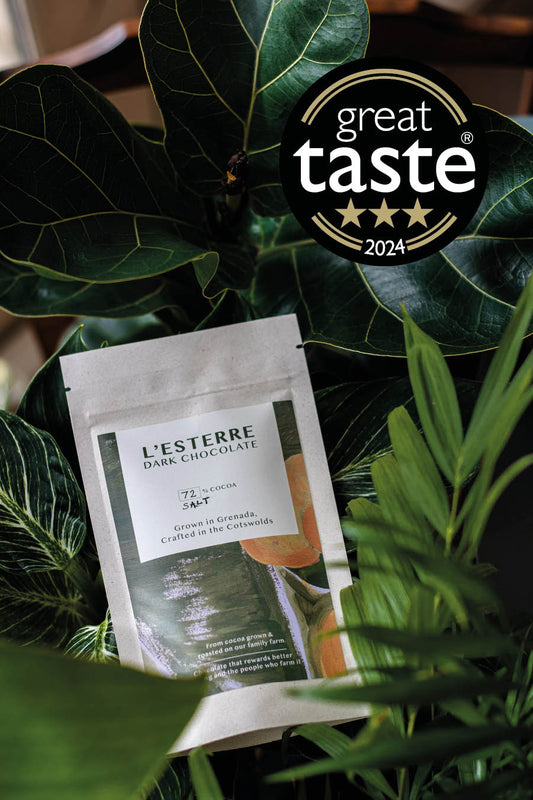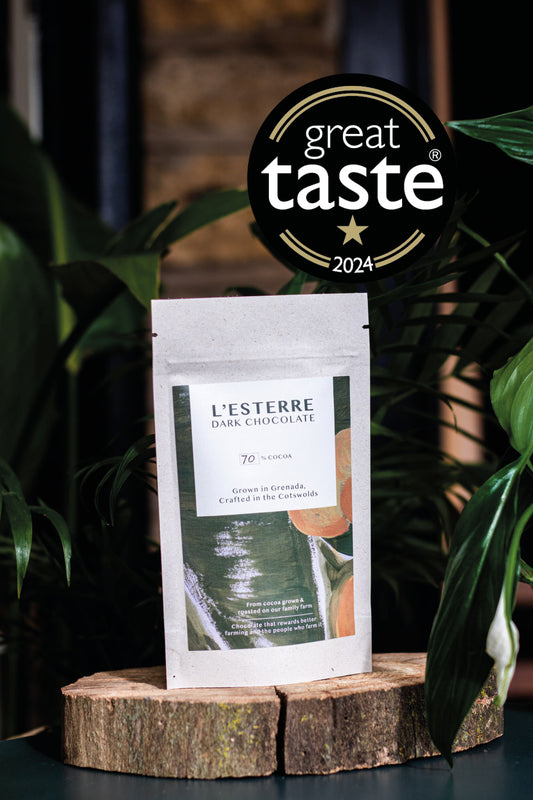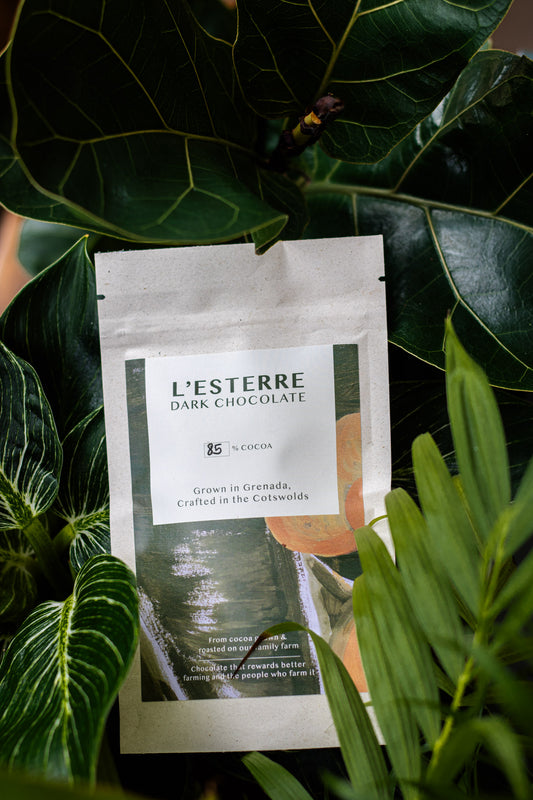
Spices; we don’t often give much thought to them beyond our kitchens. But have you ever paused to consider the true significance of spices and how it’s directly impacted life as we know it today?
Yes, our lust for spices, in particular nutmegs, is quite possibly the single most influential event to have happened in western history. The very roots of our world economy was built by the spice trade. For myself and family, the events of the spice trade are the very reason we found ourselves in Grenada. We probably wouldn’t exist had it not happened. Most likely neither would you.
How exactly? Let me show you the three ways spices have transformed our world.

1. spices shaped our modern global economy
Let’s take it back to the 16th century, on the Banda islands; the only place on the globe producing nutmeg at the time. In essence, Europeans were crazy about nutmeg. It was a much-prized part of everyday food because food hygiene and refrigeration was so bad in the middle ages that spices were used to mask the odourous smell and taste of food. So much so; trading spices was far more valuable than cash. At one point they were the most expensive items on earth; as valuable as gold.
Because nutmegs only grew on these tiny dots of land on the opposite side of the world, their value swelled. It boiled down to simple economics; limited supply vs. unparalleled demand. It comes as no surprise that developed nations fought like dogs over it. Between the Dutch, Portuguese and English, they took it in turns, overlapping turns, to charm their way into monopolizing the lucrative nutmeg market. They coaxed Bandanese natives into selling them nutmegs at rock-bottom prices. In return they assumed 1000% profit. Yes. One-thousand.
Long story short; when the Dutch discovered the Bandanese were still selling to the Portuguese, they sought revenge by forcing the Bandanese to accept even lower prices; maintaining their high profits and warding off any competition. Further coercion eventually resulted in bloodshed of the Bandanese natives. Out of a population of about 15,000 , only a couple hundred survived the attacks. A few were kept back to teach the conquerors how to grow nutmeg. By the time they were finished; the greed of the developed nations was physically evident; the islands became plantations, clean of crops, villages, and people. The spice trade had extinguished native life.

How Have These Events Impacted Our Life Today?
Because our insatiable taste for spices inspired the prominence of the Dutch, British, and Portuguese Empires; and is the single most important force for driving the world’s economy. Spices are also the reason why much of these parts of the world were ‘discovered’. Their sale and purchase were the founding roots of our current economic system. Certain cities, including New York, might not exist today had it not been for spices.
The spice trade became the early model of globalisation. Why we know so much about other cultures, foods and societies beyond our own is because spices fuelled European colonial empires; a precursor to capitalism. The spice trade in essence sparked the modern age.
Nutmegs cultivation spread slowly beyond the Banda islands over time. Slow at first as the germination of nutmeg beyond the Banda island was protected with a process called ‘liming’. Over the centuries, nutmeg was introduced to Singapore, Calcutta and Brazil, finally arriving to Grenada in 1843. Though it’s true significance for the island was not realised until 1918; as owing to Grenada’s favourable terroir, it quickly thrived and produced high quality nutmegs.

2. spices elevated our sustenance
Today’s modern society is much less dependent on spices than it was back then. No longer needed to mask the flavour of odorous food thanks to advances in food hygiene and preservation. Spices are now useful to us because they enhance our food; enriching our culinary lives, inspiring a world beyond our own via the medium of our tastebuds. Within the comfort of our kitchens, we can explore the entire globe. Eating connects us to our histories as much as it connects our souls to our bodies, our bodies to the earth.
Spices Inspire A World Beyond Our Own Via The Medium Of Our Tastebuds.
The illustrious nutmeg is reminiscent of pine trees, it has a warming richness; rounded and sensuous. The flavour comes from myristicin, the volatile oil also present in carrots, parsley and celery.
Though it is perfectly paired for creamier dishes as it cuts through its heaviness, at any eating opportunity, I load on a healthy grating of nutmeg, so much so it’s replaced salt—nutmeg on broccoli, cheese on toast; plain toast; morning muesli; rooibos tea; coffee; and cookies (recipe coming soon).
Sustenance—a common requirement for all life on this planet. But we humans; oh we do sustenance magnificently.

3. spices improved the soil
The real brilliance of spices is the spiciness themselves—the very thing we humans are drawn to in them—is really a defence mechanism, a kind of armour. Spices are useful to plants because they help them to survive. Nutmeg thrives in tropical conditions near the sea, particularly in rich volcanic soils. On our family estate, the hilly terrain and surrounding crops; mango, breadfruit, guava, cocoa and banana trees to name a few, work in symphony underneath the earth’s surface; exchanging complimentary nutrients; protecting and building soil through root resilience in the face of a changing climate.
Before being conquered, nutmeg trees grew naturally undisturbed in their native hardwood forests on the Banda islands. After their capture; unsurprisingly they were optimized into neat plantations; a single vast nutmeg grove to heighten production, though much of the harvest was blown away in the monsoon winds. A prime example of how monoculture; though higher yielding in the short term, is of less benefit in the long term.

what’s the future look like?
No longer a vital heartbeat in the global economy; the unspoken fact remains that much of what went on in the Banda islands is echoed today, minus the bloodshed. The hangover of colonial conquest simmers underneath the surface in today’s complex spice supply chains.
Take the example of Grenada; all nutmegs grown on the island are legally obliged to be sold to the government-run initiative; the Grenada Nutmeg Cooperative Association, at a set price. Though, to no fault of their own, a higher-level actor dictates the farm-gate price in which the Association must relay to producers. For many farmers, the financial incentive is nearly negative; with the cost of picking the nutmeg sometimes higher than it’s selling price.
How Can We Make Today’s Spice Trade That’s More Equitable?
reward everyone: only if we prove there is a better path; a path that rewards all actors in that supply chain more accurately. At farm-level; this could look like taking the courageous step of finding a like-minded buyer that shares your values. You may meet resilience at first; but once you find the willing market, work to improve the true value of your product through post-harvest processing.
community: when like-minded farmers group together; magic happens. We can collectively add value to our produce and own more of the supply chain and the value derived from it. Imagine, nutmeg transformed into oils, butters, powders for ethical products like skincare and spice mixes.
earth first: from the very moment humanity envisioned itself as above nature, as something to conquer and squeeze value out of for the betterment of themselves; we lost true equity. We must take a step back and reassess; instead of mindlessly mining more out the earth and optimising production in a way that isn’t favourable to the health of our soil. Instead business and industry should be revolved around the health of our earth. Not profit margins. A good starting point is rewarding growers for building soil instead of stripping it of nutrients.
At the end of the day what enriches our lives isn’t more money in our bank accounts. What enriches our lives is purpose. Even more so—legacy.
What will your legacy be?
__________________________________
Further Reading & Good Links:
Podcasts:
Eat my Globe: Spicy: The History of Spices and the Spice Trade
Stuff you missed in History class: Was Manhatten traded for nutmeg?
Books:
The Grammar of Spice by Caz Hilbrand, 2017
Empires of Food by Andrew Rimas, 2011
Olivier Roellinger’s Contemporary French Cuisine, 2005
Articles:
Nutmeg: Grenada’s ‘Black Gold’ is on the cusp of resurgence by Daphne Ewing-Chow in Forbes



